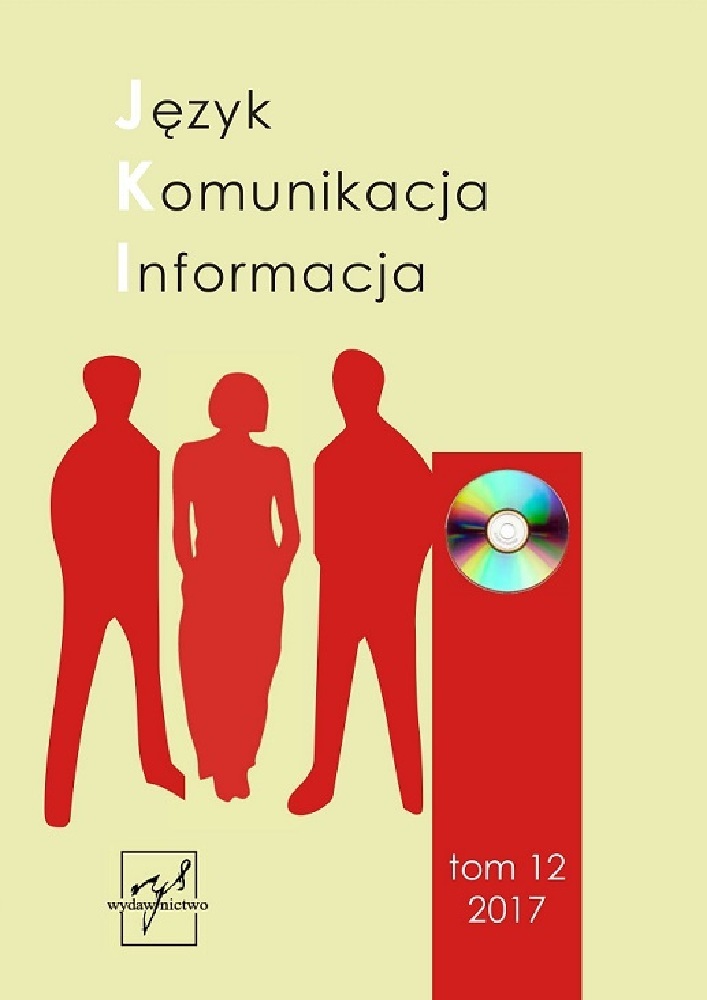Abstrakt
W przeciwieństwie do większości projektantów planowych języków międzynarodowych twórca Esperanto L.L. Zamenhof był tak samo zainteresowany planowaniem statusu jak planowaniem korpusu. Projekt Zamenhofa był na tyle kompletny, by można go było wykorzystać jako środek komunikacji, ale na tyle niepełny, aby umożliwić społeczności esperantystów wykonanie dużej części pracy nad przekształceniem projektu we w pełni rozwinięty język. Sam Zamenhof postrzegał ten język jako środek do celu i dość wcześnie powierzył rozwój języka jego użytkownikom, podczas gdy on sam dążył do wyższych celów ideologicznych. Niedawno badacze zwrócili uwagę na ideologiczną stronę społeczności esperanckiej w ogóle, w tym na silne zaangażowanie esperantystów w językową sprawiedliwość i większą świadomość wartości wielojęzyczności i różnorodności językowej.Bibliografia
Blanke, Detlev 2009: Causes of the relative success of Esperanto. Language Problems & Language Planning 33/3: 251-266.
Blommaert, Jan 2010: The Sociolinguistics of Globalization. Cambridge: Cambridge University Press.
Charters, Duncan 2015: The teaching and learning of Esperanto. INDECS: Interdisciplinary Description of Complex Systems. 13/2: 288-298.
Eco, Umberto 1995: The Search for the Perfect Language. Tr. James Fentress. Oxford and Cambridge MA: Blackwell.
Fettes, Mark 2015: Language in the United Nations post-2015 development agenda. Language Problems & Language Planning. 39/3: 298-311.
Garvía, Roberto 2015: Esperanto and Its Rivals: The Struggle for an International Language. Philadelphia: University of Pennsylvania Press.
Gobbo, Federico 2009: Fondamenti di interlinguistica ed esperantologia. Milano: Libreria Cortina.
Gordin, Michael D. 2015: Scientific Babel: How science was done before and after global English. Chicago: University of Chicago Press.
Kaplan, Robert B. & Richard B. Baldauf, Jr. 1997: Language Planning: From practice to theory. Clevedon: Multilingual Matters.
Kimura, Goro Christoph 2010: La kornvala kaj Esperanto: entreprenoj similaj? In: Detlev Blanke & Ulrich Lins (eds): La arto labori kune. Rotterdam: Universala Esperanto-Asocio. 171-177.
Kimura, Goro Christoph 2012: Esperanto and minority languages: A sociolinguistic comparison. Language Problems and Language Planning 36/2:167-181.
Konishi, Sho 2015: The science of symbiosis and linguistic democracy in twentieth-century Japan. INDECS 13/2: 299-317.
Korĵenkov [Korzhenkov], Aleksander 2011: Homarano: La vivo, verkoj kaj ideoj de d-ro L. L. Zamenhof. 2nd edition. Kaliningrad: Sezonoj / Kaunas: Litova Esperanto-Asocio.
Korzhenkov, Aleksander. 2010: Zamenhof: The Life, Works and Ideas of the Author of Esperanto, trans. Ian Richmond. New York: Mondial.
Krägeloh, Chris & Tia N. Neha 2014: Lexical expansion and terminological planning in indigenous and planned languages: Comparisons between Te Reo Maōri and Esperanto. Language Problems and Language Planning 38/1: 59-86.
Lins, Ulrich 2016: Dangerous Language: Esperanto under Hitler and Stalin. London: Palgrave Macmillan.
Lins, Ulrich 2017: Dangerous Language: Esperanto and the Decline of Stalinism. London: Palgrave Macmillan.
Müller-Saini, Gotelind & Gregor Benton 2006a: Esperanto and Chinese anarchism 1907-1920: The translation from diaspora to homeland. Language Problems and Language Planning 30:45-73.
Müller-Saini, Gotelind & Gregor Benton 2006b: Esperanto and Chinese anarchism in the 1920s and 1930s. Language Problems and Language Planning 30:173-192.
Okrent, Arika 2009: In the Land of Invented Languages. New York: Spiegel & Grau.
Puškar, Krunoslav 2015: Esperanto (s)en perspektivo? Croatian Esperantists on the International Language Esperanto. INDECS 13/2: 322-341.
Ricento, Thomas (ed.) 2006: An Introduction to Language Policy, Theory and Method. Oxford: Blackwell.
Schor, Esther 2016: Bridge of Words: Esperanto and the Dream of a Universal Language. New York: Metropolitan Books/Henry Holt.
Tauli, Valter 1968: Introduction to a Theory of Language Planning. Acta Universitatis Upsaliensis. Uppsala.
Tonkin, Humphrey 2006: Lingvo kaj popolo: Aktualaj problemoj de la Esperanto-movado. Rotterdam: UEA.
Tonkin, Humphrey 2015: Language planning and planned languages: How can planned languages inform language planning? INDECS: Interdisciplinary Description of Complex Systems, 13/2: 193-199.
Wandel, Amri 2015: How many people speak Esperanto? Esperanto on the Web. INDECS 13/2: 318-321.
Wüster, Eugen 1931: Internationale Sprachnormung in der Technik. Berlin: VDI-Verlag. [Third revised edition, Bonn: Bouvier, 1970]
Licencja
Polityka Open Access: Czasopismo zapewnia natychmiastowy, otwarty dostęp do wszystkich swoich treści zgodnie z zasadą, że badania swobodnie dostępne zwiększają i przyśpieszają globalny rozwój nauki i wymianę wiedzy.
Nadsyłając zgłoszenia, Autorzy zgadzają się na to, że artykuły w niniejszym czasopiśmie są publikowane w otwartym dostępie (Open Access) i podlegają licencji Creative Commons w wersji 4.0 BY-NC-ND.
